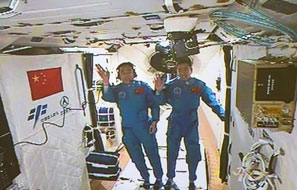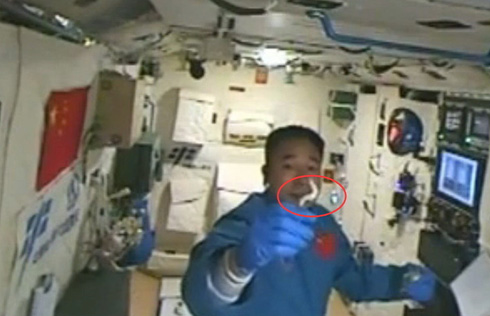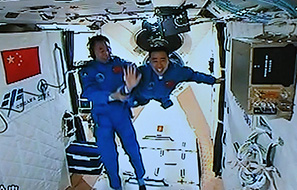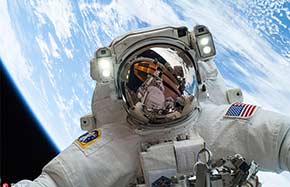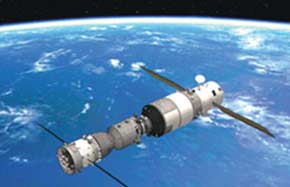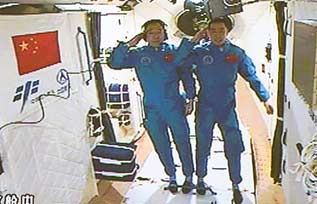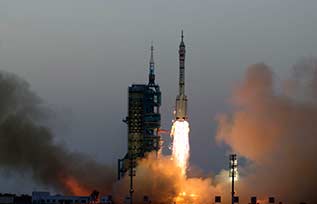Experiments carried out on third day
[2016-10-22 12:42]The two Chinese astronauts Jing Haipeng and Chen Dong have conducted experiments on the third day of their 30-day stay in the space lab. These include a brain-computer interaction and in-space plant cultivation.
World media pay special attention to China's space mission
[2016-10-21 10:49]The successful automatic docking of China's Shenzhou XI spacecraft with Tiangong II space lab Wednesday takes China one step closer to its dream of building a space station. World media have been paying great interest in the event.
Astronaut plays with silkworms in Tiangong II
[2016-10-20 15:45]Astronaut Jing Haipeng takes care of six silkworms taken aboard Tiangong II for an experiment designed by Hong Kong middle school students for watching the insect's spinning, cocooning and transformation in the microgravity, Oct 19, 2016.
Astronauts in Tiangong II show good health condition
[2016-10-20 14:46]The two astronauts aboard space lab Tiangong-2 appear to be in good health, according to a remote medical test on Thursday.
Astronauts reveal life in space
[2016-10-20 09:46]Former NASA astronaut Leroy Chiao and Alexander Zheleznyakov, a member of the Tsiolkovsky Russian Academy of Cosmonautics tell us about the day-to-day routine of astronauts along with the mental and physical challenges they face.
Astronaut's first diary from space: forget all about rice and noodle after they are heated
[2016-10-20 09:24]Today is the first day that our flight crew moved into the space complex for the Shenzhou-11 mission. It is 10:05 p.m. now, and we haven't finished our work yet.
Space program advances in heavens and on Earth
[2016-10-20 02:15]As two Chinese astronauts peered into the heavens from the Tiangong II space lab they docked with early Wednesday, Chinese rocket scientists on the ground said they are looking into ways to shape the future of the nation's space market.
Russian cosmonauts congratulate Chinese astronauts, wish to fly together in space
[2016-10-19 17:08]The two Chinese astronauts aboard the Shenzhou-11 spacecraft entered the space lab Tiangong-2 on Wednesday morning, bringing China closer to its dream of building a space station.
Shenzhou XI astronauts enter Tiangong II space lab
[2016-10-19 07:40]The two astronauts aboard the Shenzhou XI spacecraft entered the space lab Tiangong II at 6:32 Wednesday morning Beijing Time.
Astronauts ready to kick off busy month in space
[2016-10-19 07:09]The Shenzhou XI manned spacecraft was scheduled to dock with the Tiangong II space lab in the early hours of Wednesday morning as astronauts start their busy, monthlong schedule, the space authority said.
European ex-astronaut applauds progress, advises peers in China's manned space program
[2016-10-18 11:50]The steady progress of China's manned space program has been very impressive and it is hoped that international cooperation on space exploration will be further expanded and deepened, Claudie Haignere, an adviser to the director general of the European Space Agency (ESA), has said.
Permanent station plans ride on mission
[2016-10-18 02:43]It's a station that is likely to be the world's only one after the International Space Station is retired around 2024, according to experts.
